RBS 2012 Annual Report Download - page 370
Download and view the complete annual report
Please find page 370 of the 2012 RBS annual report below. You can navigate through the pages in the report by either clicking on the pages listed below, or by using the keyword search tool below to find specific information within the annual report.-
 1
1 -
 2
2 -
 3
3 -
 4
4 -
 5
5 -
 6
6 -
 7
7 -
 8
8 -
 9
9 -
 10
10 -
 11
11 -
 12
12 -
 13
13 -
 14
14 -
 15
15 -
 16
16 -
 17
17 -
 18
18 -
 19
19 -
 20
20 -
 21
21 -
 22
22 -
 23
23 -
 24
24 -
 25
25 -
 26
26 -
 27
27 -
 28
28 -
 29
29 -
 30
30 -
 31
31 -
 32
32 -
 33
33 -
 34
34 -
 35
35 -
 36
36 -
 37
37 -
 38
38 -
 39
39 -
 40
40 -
 41
41 -
 42
42 -
 43
43 -
 44
44 -
 45
45 -
 46
46 -
 47
47 -
 48
48 -
 49
49 -
 50
50 -
 51
51 -
 52
52 -
 53
53 -
 54
54 -
 55
55 -
 56
56 -
 57
57 -
 58
58 -
 59
59 -
 60
60 -
 61
61 -
 62
62 -
 63
63 -
 64
64 -
 65
65 -
 66
66 -
 67
67 -
 68
68 -
 69
69 -
 70
70 -
 71
71 -
 72
72 -
 73
73 -
 74
74 -
 75
75 -
 76
76 -
 77
77 -
 78
78 -
 79
79 -
 80
80 -
 81
81 -
 82
82 -
 83
83 -
 84
84 -
 85
85 -
 86
86 -
 87
87 -
 88
88 -
 89
89 -
 90
90 -
 91
91 -
 92
92 -
 93
93 -
 94
94 -
 95
95 -
 96
96 -
 97
97 -
 98
98 -
 99
99 -
 100
100 -
 101
101 -
 102
102 -
 103
103 -
 104
104 -
 105
105 -
 106
106 -
 107
107 -
 108
108 -
 109
109 -
 110
110 -
 111
111 -
 112
112 -
 113
113 -
 114
114 -
 115
115 -
 116
116 -
 117
117 -
 118
118 -
 119
119 -
 120
120 -
 121
121 -
 122
122 -
 123
123 -
 124
124 -
 125
125 -
 126
126 -
 127
127 -
 128
128 -
 129
129 -
 130
130 -
 131
131 -
 132
132 -
 133
133 -
 134
134 -
 135
135 -
 136
136 -
 137
137 -
 138
138 -
 139
139 -
 140
140 -
 141
141 -
 142
142 -
 143
143 -
 144
144 -
 145
145 -
 146
146 -
 147
147 -
 148
148 -
 149
149 -
 150
150 -
 151
151 -
 152
152 -
 153
153 -
 154
154 -
 155
155 -
 156
156 -
 157
157 -
 158
158 -
 159
159 -
 160
160 -
 161
161 -
 162
162 -
 163
163 -
 164
164 -
 165
165 -
 166
166 -
 167
167 -
 168
168 -
 169
169 -
 170
170 -
 171
171 -
 172
172 -
 173
173 -
 174
174 -
 175
175 -
 176
176 -
 177
177 -
 178
178 -
 179
179 -
 180
180 -
 181
181 -
 182
182 -
 183
183 -
 184
184 -
 185
185 -
 186
186 -
 187
187 -
 188
188 -
 189
189 -
 190
190 -
 191
191 -
 192
192 -
 193
193 -
 194
194 -
 195
195 -
 196
196 -
 197
197 -
 198
198 -
 199
199 -
 200
200 -
 201
201 -
 202
202 -
 203
203 -
 204
204 -
 205
205 -
 206
206 -
 207
207 -
 208
208 -
 209
209 -
 210
210 -
 211
211 -
 212
212 -
 213
213 -
 214
214 -
 215
215 -
 216
216 -
 217
217 -
 218
218 -
 219
219 -
 220
220 -
 221
221 -
 222
222 -
 223
223 -
 224
224 -
 225
225 -
 226
226 -
 227
227 -
 228
228 -
 229
229 -
 230
230 -
 231
231 -
 232
232 -
 233
233 -
 234
234 -
 235
235 -
 236
236 -
 237
237 -
 238
238 -
 239
239 -
 240
240 -
 241
241 -
 242
242 -
 243
243 -
 244
244 -
 245
245 -
 246
246 -
 247
247 -
 248
248 -
 249
249 -
 250
250 -
 251
251 -
 252
252 -
 253
253 -
 254
254 -
 255
255 -
 256
256 -
 257
257 -
 258
258 -
 259
259 -
 260
260 -
 261
261 -
 262
262 -
 263
263 -
 264
264 -
 265
265 -
 266
266 -
 267
267 -
 268
268 -
 269
269 -
 270
270 -
 271
271 -
 272
272 -
 273
273 -
 274
274 -
 275
275 -
 276
276 -
 277
277 -
 278
278 -
 279
279 -
 280
280 -
 281
281 -
 282
282 -
 283
283 -
 284
284 -
 285
285 -
 286
286 -
 287
287 -
 288
288 -
 289
289 -
 290
290 -
 291
291 -
 292
292 -
 293
293 -
 294
294 -
 295
295 -
 296
296 -
 297
297 -
 298
298 -
 299
299 -
 300
300 -
 301
301 -
 302
302 -
 303
303 -
 304
304 -
 305
305 -
 306
306 -
 307
307 -
 308
308 -
 309
309 -
 310
310 -
 311
311 -
 312
312 -
 313
313 -
 314
314 -
 315
315 -
 316
316 -
 317
317 -
 318
318 -
 319
319 -
 320
320 -
 321
321 -
 322
322 -
 323
323 -
 324
324 -
 325
325 -
 326
326 -
 327
327 -
 328
328 -
 329
329 -
 330
330 -
 331
331 -
 332
332 -
 333
333 -
 334
334 -
 335
335 -
 336
336 -
 337
337 -
 338
338 -
 339
339 -
 340
340 -
 341
341 -
 342
342 -
 343
343 -
 344
344 -
 345
345 -
 346
346 -
 347
347 -
 348
348 -
 349
349 -
 350
350 -
 351
351 -
 352
352 -
 353
353 -
 354
354 -
 355
355 -
 356
356 -
 357
357 -
 358
358 -
 359
359 -
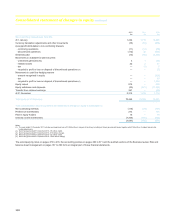 360
360 -
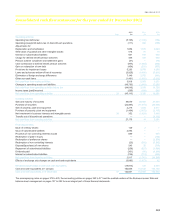 361
361 -
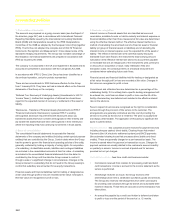 362
362 -
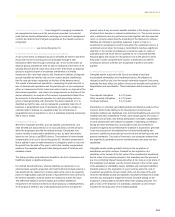 363
363 -
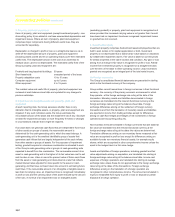 364
364 -
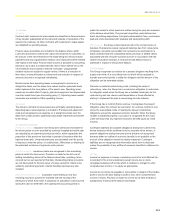 365
365 -
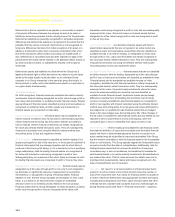 366
366 -
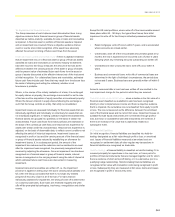 367
367 -
 368
368 -
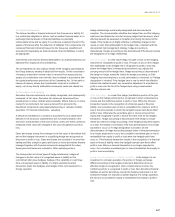 369
369 -
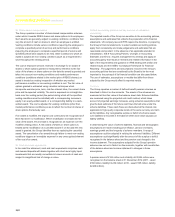 370
370 -
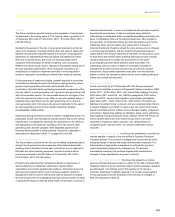 371
371 -
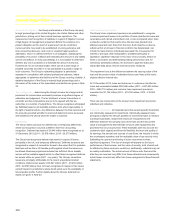 372
372 -
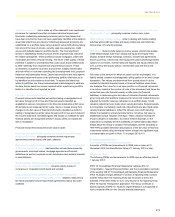 373
373 -
 374
374 -
 375
375 -
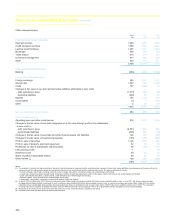 376
376 -
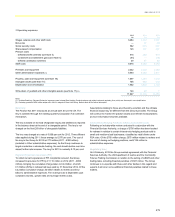 377
377 -
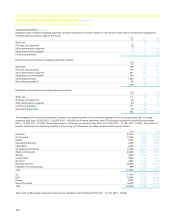 378
378 -
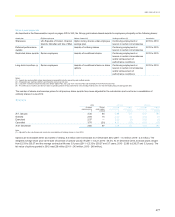 379
379 -
 380
380 -
 381
381 -
 382
382 -
 383
383 -
 384
384 -
 385
385 -
 386
386 -
 387
387 -
 388
388 -
 389
389 -
 390
390 -
 391
391 -
 392
392 -
 393
393 -
 394
394 -
 395
395 -
 396
396 -
 397
397 -
 398
398 -
 399
399 -
 400
400 -
 401
401 -
 402
402 -
 403
403 -
 404
404 -
 405
405 -
 406
406 -
 407
407 -
 408
408 -
 409
409 -
 410
410 -
 411
411 -
 412
412 -
 413
413 -
 414
414 -
 415
415 -
 416
416 -
 417
417 -
 418
418 -
 419
419 -
 420
420 -
 421
421 -
 422
422 -
 423
423 -
 424
424 -
 425
425 -
 426
426 -
 427
427 -
 428
428 -
 429
429 -
 430
430 -
 431
431 -
 432
432 -
 433
433 -
 434
434 -
 435
435 -
 436
436 -
 437
437 -
 438
438 -
 439
439 -
 440
440 -
 441
441 -
 442
442 -
 443
443 -
 444
444 -
 445
445 -
 446
446 -
 447
447 -
 448
448 -
 449
449 -
 450
450 -
 451
451 -
 452
452 -
 453
453 -
 454
454 -
 455
455 -
 456
456 -
 457
457 -
 458
458 -
 459
459 -
 460
460 -
 461
461 -
 462
462 -
 463
463 -
 464
464 -
 465
465 -
 466
466 -
 467
467 -
 468
468 -
 469
469 -
 470
470 -
 471
471 -
 472
472 -
 473
473 -
 474
474 -
 475
475 -
 476
476 -
 477
477 -
 478
478 -
 479
479 -
 480
480 -
 481
481 -
 482
482 -
 483
483 -
 484
484 -
 485
485 -
 486
486 -
 487
487 -
 488
488 -
 489
489 -
 490
490 -
 491
491 -
 492
492 -
 493
493 -
 494
494 -
 495
495 -
 496
496 -
 497
497 -
 498
498 -
 499
499 -
 500
500 -
 501
501 -
 502
502 -
 503
503 -
 504
504 -
 505
505 -
 506
506 -
 507
507 -
 508
508 -
 509
509 -
 510
510 -
 511
511 -
 512
512 -
 513
513 -
 514
514 -
 515
515 -
 516
516 -
 517
517 -
 518
518 -
 519
519 -
 520
520 -
 521
521 -
 522
522 -
 523
523 -
 524
524 -
 525
525 -
 526
526 -
 527
527 -
 528
528 -
 529
529 -
 530
530 -
 531
531 -
 532
532 -
 533
533 -
 534
534 -
 535
535 -
 536
536 -
 537
537 -
 538
538 -
 539
539 -
 540
540 -
 541
541 -
 542
542 -
 543
543
 |
 |

368
Accounting policies continued
25. Share-based compensation
The Group operates a number of share-based compensation schemes
under which it awards RBSG shares and share options to its employees.
Such awards are generally subject to vesting conditions: conditions that
vary the amount of cash or shares to which an employee is entitled.
Vesting conditions include service conditions (requiring the employee to
complete a specified period of service) and performance conditions
(requiring the employee to complete a specified period of service and
specified performance targets to be met). Other conditions to which an
award is subject are non-vesting conditions (such as a requirement to
save throughout the vesting period).
The cost of employee services received in exchange for an award of
shares or share options granted is measured by reference to the fair
value of the shares or share options on the date the award is granted and
takes into account non-vesting conditions and market performance
conditions (conditions related to the market price of RBSG shares): an
award is treated as vesting irrespective of whether any market
performance condition or non-vesting condition is met. The fair value of
options granted is estimated using valuation techniques which
incorporate exercise price, term, risk-free interest rates, the current share
price and its expected volatility. The cost is expensed on a straight-line
basis over the vesting period (the period during which all the specified
vesting conditions must be satisfied) with a corresponding increase in
equity in an equity-settled award, or a corresponding liability in a cash-
settled award. The cost is adjusted for vesting conditions (other than
market performance conditions) so as to reflect the number of shares or
share options that actually vest.
If an award is modified, the original cost continues to be recognised as if
there had been no modification. Where modification increases the fair
value of the award, this increase is recognised as an expense over the
modified vesting period. A new award of shares or share options is
treated as the modification of a cancelled award if, on the date the new
award is granted, the Group identifies them as replacing the cancelled
award. The cancellation of an award through failure to meet non-vesting
conditions triggers an immediate expense for any unrecognised element
of the cost of an award.
26. Cash and cash equivalents
In the cash flow statement, cash and cash equivalents comprises cash
and demand deposits with banks together with short-term highly liquid
investments that are readily convertible to known amounts of cash and
subject to insignificant risk of change in value.
Critical accounting policies and key sources of estimation
uncertainty
The reported results of the Group are sensitive to the accounting policies,
assumptions and estimates that underlie the preparation of its financial
statements. UK company law and IFRS require the directors, in preparing
the Group's financial statements, to select suitable accounting policies,
apply them consistently and make judgements and estimates that are
reasonable and prudent. In the absence of an applicable standard or
interpretation, IAS 8 ‘Accounting Policies, Changes in Accounting
Estimates and Errors’, requires management to develop and apply an
accounting policy that results in relevant and reliable information in the
light of the requirements and guidance in IFRS dealing with similar and
related issues and the IASB's ’Conceptual Framework for Financial
Reporting’. The judgements and assumptions involved in the Group's
accounting policies that are considered by the Board to be the most
important to the portrayal of its financial condition are discussed below.
The use of estimates, assumptions or models that differ from those
adopted by the Group would affect its reported results.
Pensions
The Group operates a number of defined benefit pension schemes as
described in Note 4 on the accounts. The assets of the schemes are
measured at their fair value at the balance sheet date. Scheme liabilities
are measured using the projected unit credit method, which takes
account of projected earnings increases, using actuarial assumptions that
give the best estimate of the future cash flows that will arise under the
scheme liabilities. These cash flows are discounted at the interest rate
applicable to high-quality corporate bonds of the same currency and term
as the liabilities. Any recognisable surplus or deficit of scheme assets
over liabilities is recorded in the balance sheet as an asset (surplus) or
liability (deficit).
In determining the value of scheme liabilities, financial and demographic
assumptions are made including price inflation, pension increases,
earnings growth and the longevity of scheme members. A range of
assumptions could be adopted in valuing the schemes' liabilities. Different
assumptions could significantly alter the amount of the surplus or deficit
recognised in the balance sheet and the pension cost charged to the
income statement. The assumptions adopted for the Group's pension
schemes are set out in Note 4 on the accounts, together with sensitivities
of the balance sheet and income statement to changes in those
assumptions.
A pension asset of £144 million and a liability of £3,884 million were
recognised on the balance sheet at 31 December 2012 (2011 - asset
£188 million, liability £2,239 million; 2010 - asset £105 million, liability
£2,288 million).
